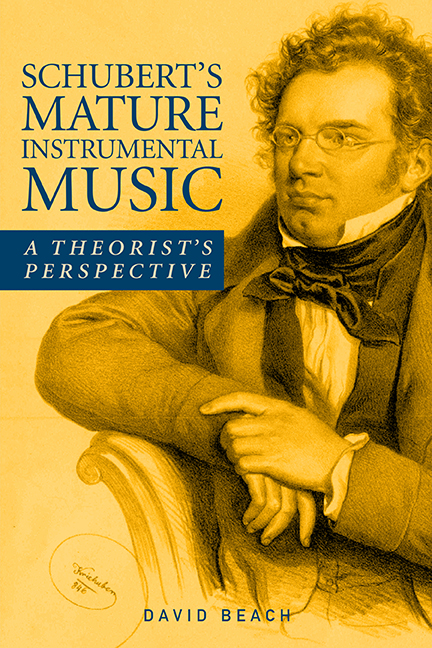Summary
Motive is a germinal idea that is repeated in the course of a musical composition. There are two basic types. First, there are those defined by their rhythmic articulation and contour, as we hear, for example, in the opening measures of the D-Minor Quartet. These ideas occur on the musical surface, by which I mean as presented in the score and thus heard note-to-note. Second are those defined primarily by their pitch or scale-degree succession. These motives may occur at the musical surface, but also at deeper levels of the voice leading—not note-to-note, but nevertheless identifiable. Probably the most common idea of this second type is the neighbor-note motive that is articulated at or near the musical surface but also over longer spans of time. We will encounter both types in Schubert's music.
I have organized the following presentation into four categories, and within each category I will generally progress from simpler to more complex.
vs. ♭ (andvs. ♭)
There are various circumstances under which we encounter the interchange between scale degree 3 and ♭ , or and ♭ , or both. For example, it is com- mon in sonata-form movements in the minor mode to hear the second theme in the recapitulation stated in the tonic major, as, for example, in the late quar- tets in A minor and D minor. But in these circumstances there is not an imme- diate juxtaposition of ♭ and , though it should be noted that C♯ and A major are features of the first theme area of the A-Minor Quartet. Even in this last case I would not characterize this interchange of and ♭ as motivic. Examples where and ♭ do occur in relatively close proximity can be found in some of the shorter piano pieces, like the Impromptu in E-flat, D. 899, no. 2, and the Trio of the Impromptu in A-flat, D. 935, no. 2 (see ex. 1.3). These are clear examples of modal interchange, but not motivic repetition. What is required, at least in my mind, for this interchange to achieve motivic status is that and ♭ not only occur in close proximity but also be articulated in such a way that we hear them as related.
- Type
- Chapter
- Information
- Schubert's Mature Instrumental MusicA Theorist's Perspective, pp. 61 - 78Publisher: Boydell & BrewerPrint publication year: 2017



